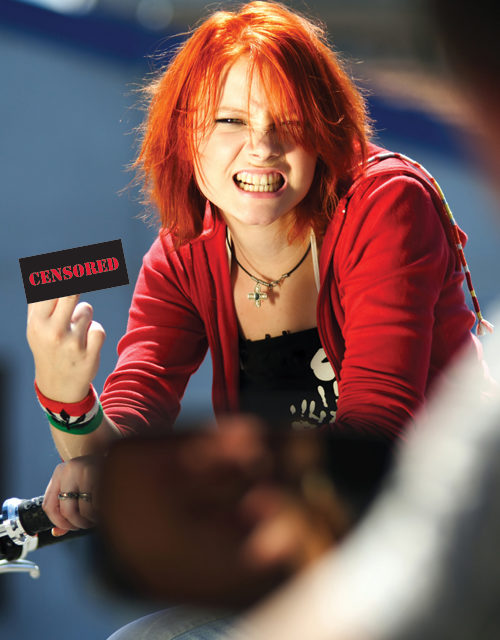
Written By David Greisman
Civilization has changed. So, too, has civility.
Technology has changed the United States in many ways for the better. It has also changed the way we treat each other; and in some ways our manners are worse.
P.M. Forni, a professor of Italian literature at Johns Hopkins University in Baltimore, has long spoken and written about civility in society. In 1997 he founded what is now known as The Civility Initiative at Johns Hopkins, and has penned three books on the subject: Choosing Civility: The Twenty-Five Rules of Considerate Conduct, The Civility Solution: What to Do When People Are Rude, and, most recently, The Thinking Life: How to Thrive in the Age of Distraction.
To him, society has become less civil in some ways, more accepting in others.
“There are certain forms of deference and respect in decline,” Forni said. “There is cause for concern. However, we often do not consider the other side of the coin. At the very time there are forms of civility becoming obsolete, there are newer forms that, in part, take the place of those that are in decline. We have to say that the glass is half empty, but also the glass is half full.”
For example, he said, there might be fewer people in this generation who would give up their bus seats for a pregnant woman, but there also are more men who would look at that woman as their intellectual and professional peer at work.
Many people might think civility and good manners are limited to which fork is used to eat salad, but Forni says it is actually how people treat each other in everyday life; what he calls a benevolent awareness.
“We are civil when we are aware of others and we weave restraint, respect and consideration into the very fabric of that awareness,” he said. “It is a form of attention. We cannot have civility like we cannot have love without paying attention to the other person. Civility is a form of transcending our own immediate needs and desires to tend the needs and desires of others.”
But, according to research, most Americans aren’t civil toward each other. Forni said two-thirds of those surveyed believe incivility is a major problem in the United States, and 90 percent feel that incivility has negative consequences on the nation.
“If you ask Americans, ÔDo you think Americans are rude?’ about six out of 10 will say yes. Now if you ask Americans, ÔDo you think you are rude?’ 99 percent will say no,’ ” Forni said. “That’s the bias against personal responsibility. We often see the problem, but we don’t see ourselves as being part of it.”
The problems, he said, come from lack of restraint, insecurity, stress, anonymity, lack of time, lack of accountability; and people being far less concerned than they used to be about social approval.
“We simply care less than we used to about what other people think of us,” Forni said. “In part, we don’t live in the small neighborhoods where everybody knew one another. They had an incentive to behave well, because if they behaved badly everybody else would’ve known that, and there’d be a price to pay.”
Society today is more stressed, more informal and more anonymous, he said. People are more likely to cross the proverbial line. And in a country where people often do not know their neighbors down the street or even next door, there is less incentive when it comes to being considerate or kind.
“We are more likely to be critical and abrasive and hostile because they don’t know our names,” he said, comparing that mentality to a case of road rage brought on by both stress and anonymity. A confrontation between angry drivers is more likely to ensue if they do not know each other. But if Driver No. 1 is the principal of a school that Driver No. 2’s children attends, and Driver No. 2 is the pastor of the church that Driver No. 1 goes to, the pair are more likely to be considerate to each other.
And the technology that has made this world seem like one large civilization has also made us less civil — with radio, then television and then the computer, leisure time has become increasingly private, Forni said. And behavior online can be particularly offensive because of the nature of Internet interaction.
“Often we can act in anonymous ways on the Internet,” Forni said. “You see how the Internet, that potentially wonderful instrument, has become also the dismal collector of society’s moral toxins. We are not as inhibited online. We do not have the other person in front of us, and so it’s much easier to abuse someone.”
Bullying no longer just takes place in schools, but in chat rooms and on message boards, in article comment sections and on social media websites.
“We very often take out our own problems, insecurities and defects,” Forni said. “We use the Internet as a form of brutal therapy where we shift the burden of our insecurity and unhappiness onto others in the form of hostility.”
He noted that his work has influenced civility initiatives in Cleveland Heights, Ohio; Duluth, Minn.; Grand Rapids, Mich.; and Hershey, Pa. More locally, Howard County in Maryland kicked off its “Choose Civility” campaign in 2007.
This country is more civil than it once was when it comes to matters of race, he said, and also in people’s treatment of those who are less fortunate.
“We are more respectful of people who do not look like us,” Forni said. “We are more respectful of the planet on which we live; there is an ecological consciousness. We are more respectful of children, of the weaker links in the chain of society.
“In many aspects we are more civil than we used to be,” he said. “Especially when it comes to broad social issues.”

